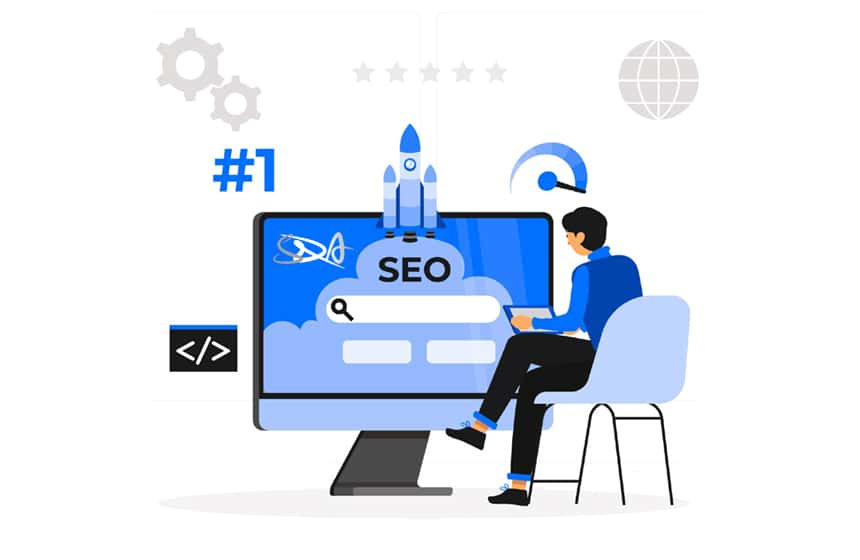In today’s digital age, understanding search engine optimization (SEO) is crucial for businesses aiming to increase their online visibility and attract more traffic. SEO involves optimizing your website to rank higher on search engine results pages (SERPs), making it easier for potential customers to find you. This guide will delve into the various aspects of SEO, providing valuable insights and practical tips for anyone looking to improve their online presence.
Understanding Search Engine Optimization
Search engine optimization is a multifaceted discipline that involves various strategies and techniques to improve a website’s visibility on search engines like Google, Bing, and Yahoo. At its core, SEO aims to drive organic traffic to your website by improving your search engine rankings. This process involves optimizing various elements of your website, including content, keywords, meta tags, and backlinks.
The Role of a Search Engine Optimization Analyst
A search engine optimization analyst plays a crucial role in developing and implementing effective SEO strategies. These professionals analyze website performance, conduct keyword research, and identify opportunities for improvement. They also monitor search engine algorithms and trends to ensure that their strategies remain effective. By working closely with web developers and content creators, SEO analysts help businesses achieve their online marketing goals.
Key Components of Search Engine Optimization
Effective search engine optimization involves several key components, each contributing to the overall success of your SEO strategy. These components include:
1. Keyword Research
Keyword research is the foundation of any successful SEO strategy. It involves identifying the terms and phrases that potential customers use when searching for products or services similar to yours. By incorporating these keywords into your website content, you can improve your chances of ranking higher on SERPs. Tools like Google Keyword Planner and SEMrush can help you find relevant keywords with high search volume and low competition.
2. On-Page SEO
On-page SEO refers to the optimization of individual web pages to improve their search engine rankings. This involves optimizing elements such as:
- Title Tags: Ensure that your title tags are descriptive and include your primary keywords.
- Meta Descriptions: Write compelling meta descriptions that include keywords and encourage users to click on your link.
- Header Tags: Use header tags (H1, H2, H3, etc.) to structure your content and make it easier for search engines to understand.
- URL Structure: Create clean and descriptive URLs that include your target keywords.
- Content Optimization: Ensure that your content is high-quality, relevant, and includes your target keywords.
3. Off-Page SEO
Off-page SEO involves activities that take place outside your website but still impact your search engine rankings. This includes:
- Backlink Building: Acquiring high-quality backlinks from reputable websites to boost your site’s authority.
- Social Media Marketing: Promoting your content on social media platforms to increase its reach and attract more visitors.
- Guest Blogging: Writing guest posts for other websites to gain exposure and earn backlinks.
4. Technical SEO
Technical SEO focuses on optimizing the technical aspects of your website to improve its performance and user experience. Key elements of technical SEO include:
- Site Speed: Ensure that your website loads quickly to reduce bounce rates and improve user experience.
- Mobile-Friendliness: Optimize your website for mobile devices, as more users are accessing the web through smartphones and tablets.
- XML Sitemaps: Create and submit XML sitemaps to search engines to help them crawl and index your site.
- Robots.txt: Use the robots.txt file to control which pages search engines can crawl and index.
The Importance of a Search Engine Optimization Expert
Hiring a search engine optimization expert can significantly enhance your SEO efforts. These professionals possess in-depth knowledge and experience in developing and implementing effective SEO strategies. They stay updated with the latest algorithm changes and industry trends, ensuring that your website remains competitive. An SEO expert can help you achieve better rankings, drive more organic traffic, and ultimately increase your revenue.
Benefits of Working with a Search Engine Optimization Consultant
A search engine optimization consultant provides valuable insights and guidance to help you improve your website’s performance. Here are some benefits of working with an SEO consultant:
- Customized Strategies: An SEO consultant can develop tailored strategies that align with your business goals and target audience.
- Cost-Effective Solutions: A cheap search engine optimization consultant can provide affordable solutions without compromising on quality.
- Performance Tracking: Consultants use advanced analytics tools to track your website’s performance and make data-driven decisions.
- Continuous Improvement: An SEO consultant continuously monitors and optimizes your website to ensure sustained success.
SEO Tools and Resources
There are numerous tools and resources available to help you with your search engine optimization efforts. Some popular SEO tools include:
- Google Analytics: A powerful tool for tracking website traffic, user behavior, and conversions.
- Google Search Console: Provides insights into how your website is performing on Google search and identifies issues that need fixing.
- SEMrush: A comprehensive SEO tool for keyword research, competitor analysis, and site audits.
- Ahrefs: Offers tools for backlink analysis, keyword research, and content exploration.
- Moz: Provides various SEO tools, including keyword research, site audits, and rank tracking.
SEO Best Practices
To achieve long-term success with search engine optimization, it’s essential to follow best practices and stay updated with industry trends. Here are some key SEO best practices:
1. Create High-Quality Content
Content is king when it comes to SEO. Focus on creating informative, engaging, and original content that provides value to your audience. Incorporate your target keywords naturally and avoid keyword stuffing.
2. Optimize for User Experience
A positive user experience is crucial for SEO. Ensure that your website is easy to navigate, loads quickly, and is mobile-friendly. Improve your site’s design and usability to keep visitors engaged.
3. Build a Strong Backlink Profile
Acquiring high-quality backlinks from authoritative websites can significantly boost your search engine rankings. Focus on building relationships with other website owners and creating shareable content that attracts backlinks.
4. Monitor and Analyze Your Performance
Regularly monitor your website’s performance using tools like Google Analytics and Search Console. Analyze your traffic, rankings, and user behavior to identify areas for improvement and measure the effectiveness of your SEO efforts.
5. Stay Updated with Algorithm Changes
Search engine algorithms are constantly evolving. Stay informed about the latest updates and changes to ensure that your SEO strategies remain effective. Follow industry blogs, attend webinars, and participate in SEO forums to stay ahead of the curve.
Search Engine Optimization Cost in India
The search engine optimization cost in India varies depending on the scope of the project, the complexity of the website, and the expertise of the SEO professional. Generally, SEO services in India are more affordable compared to other countries, making it an attractive option for businesses looking to optimize their websites without breaking the bank. Prices can range from a few thousand to several lakhs of rupees per month, depending on the level of service and results expected.
Conclusion
Mastering search engine optimization is essential for businesses aiming to increase their online visibility and attract more organic traffic. By understanding the key components of SEO and implementing effective strategies, you can improve your search engine rankings and achieve your online marketing goals. Whether you choose to work with a digital marketing expert or a search engine optimization consultant, investing in SEO can yield significant long-term benefits for your business.
FAQs
1. What is Search Engine Optimization?
Search engine optimization is the process of optimizing a website to improve its visibility and rankings on search engine results pages. It involves various techniques, including keyword research, on-page optimization, off-page optimization, and technical SEO.
2. How long does it take to see results from SEO?
The time it takes to see results from search engine optimization can vary depending on factors such as the competitiveness of your industry, the quality of your SEO strategy, and the current state of your website. Generally, it can take anywhere from a few months to a year to see significant improvements in rankings and traffic.
3. How much does SEO cost in India?
The search engine optimization cost in India varies depending on the scope and complexity of the project. Prices can range from a few thousand to several lakhs of rupees per month. It’s important to choose an SEO service provider that offers a good balance between cost and quality.







